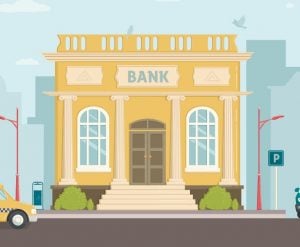Latest news about Bitcoin and all cryptocurrencies. Your daily crypto news habit.

Over 40 companies in South Korea are participating in cryptocurrency self-regulation. Among them are 14 exchanges which have agreed to implement self-regulatory measures; they include Bithumb, Coinone, and Korbit. This announcement came just one day after the Korean government released its emergency crypto regulation.
Also read: South Korea Clarifies Position After Reports of Possible Ban on All Crypto Transactions
Announcing Self-Regulation
The Korean Blockchain Industry Association announced self-regulatory measures for cryptocurrency exchanges at a press conference in Seoul on Friday. This came one day after the country’s regulators released their emergency measures aimed at curbing the crypto market.
The association claims to have over 40 companies participating in the self-regulatory initiatives. Among them are 14 bitcoin exchanges including the country’s top three – Bithumb, Coinone, and Korbit, Hankyung reported. The Korea Times elaborated:
The Korean Blockchain Industry Association said 14 cryptocurrency exchanges in the country agreed to implement plans to help protect investors’ assets and make the listing process of new cryptocurrency products more transparent.
The drafting of this self-regulation began in September at the recommendation of the government’s Virtual Currency Task Force, according to Sisaweek publication. “We will cooperate with government plans for safer cryptocurrency trading via voluntary regulation,” said Kim Jin-hwa, one of the association’s leaders. The self-regulatory measures will be implemented starting in January of next year.
 The Korean Blockchain Association announcing self-regulation.
The Korean Blockchain Association announcing self-regulation.
Regulating Customer Deposits and Accounts
 Kim Jin-hwa of the Korean Blockchain Association speaking.
Kim Jin-hwa of the Korean Blockchain Association speaking.
One of the self-regulatory measures is for traders’ won deposits to be kept fully at financial institutions. Meanwhile, 70% of their crypto holdings are to be kept offline in cold storage. This measure aims to increase traders’ protection, Kim detailed, adding that it will reduce the possibility of attacks from hackers.
In addition, only one registered crypto trading account per user will be allowed. Face-to-face identity verification will be required before any deposits or withdraws can occur. “Only a confirmed customer through a verification process” can trade cryptocurrencies, Kim noted.
Banks Creating User Verification System
One of the government’s emergency measures concerns virtual bank accounts. News.Bitcoin.com recently explained why these accounts are needed in cryptocurrency trading in Korea. The regulators’ clampdown has prompted major banks in the country to announce that they will no longer provide this service to cryptocurrency exchanges, which could result in some exchanges going out of business.
 Specifically, the regulators have asked banks to identify users of virtual bank accounts. However, banks claim that they issue these accounts to crypto exchanges without knowing whom each one is assigned to.
Specifically, the regulators have asked banks to identify users of virtual bank accounts. However, banks claim that they issue these accounts to crypto exchanges without knowing whom each one is assigned to.
Financial institutions are now collaborating with the Korean Blockchain Association to come up with a way to comply with the regulation. A number of major Korean banks have begun working together to develop a system of identifying virtual account customers. Nonghyup Bank, KB Kookmin Bank, IBK Bank, KEB Hana Bank, Shinhan Bank, and Kwangju Bank have all revealed their plans to work on this project.
Once the banks’ system is implemented, “we can compare the user information held by the exchange with the information registered at the bank,” Kim explained, adding that virtual accounts will only be used if the information matches.
Requirements on Exchanges
The association also imposes requirements on cryptocurrency exchanges, to be implemented on January 1 of next year. News33 elaborated:
The requirement to operate a virtual currency exchange is limited to a place with more than 2 billion won [~USD$1.83 million] of equity capital. It should be a place that can implement information security system, internal process, and information security manpower similar to a financial provider.
In addition, Kim said the association will suspend the listing of all new cryptocurrencies for the time being. However, these measures are not compulsory as the association is a private organization and cannot enforce rules on exchanges. However, any exchanges in violation of the rules will be dismissed from the association.
Lastly, association members also agreed to operate a committee for investors to receive legal advice. Furthermore, Kim said, “We will set up a dispute settlement committee under the association and plan to investigate and examine disputes between exchanges and users.”
What do you think of Korean exchanges implementing these self-regulatory measures? Let us know in the comments section below.
Images courtesy of Shutterstock, Korea Times, and News33.
Need to calculate your bitcoin holdings? Check our tools section.
The post South Korean Cryptocurrency Exchanges to Implement Self-Regulation appeared first on Bitcoin News.
Disclaimer
The views and opinions expressed in this article are solely those of the authors and do not reflect the views of Bitcoin Insider. Every investment and trading move involves risk - this is especially true for cryptocurrencies given their volatility. We strongly advise our readers to conduct their own research when making a decision.